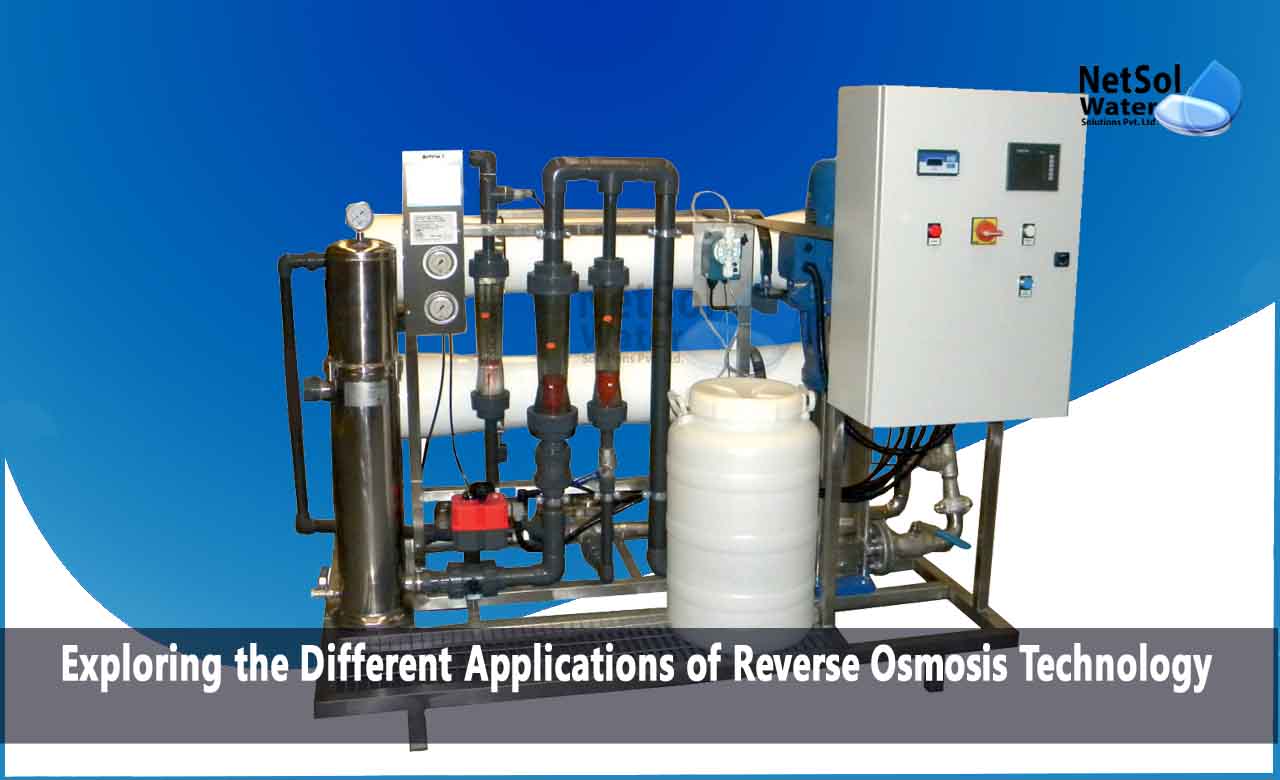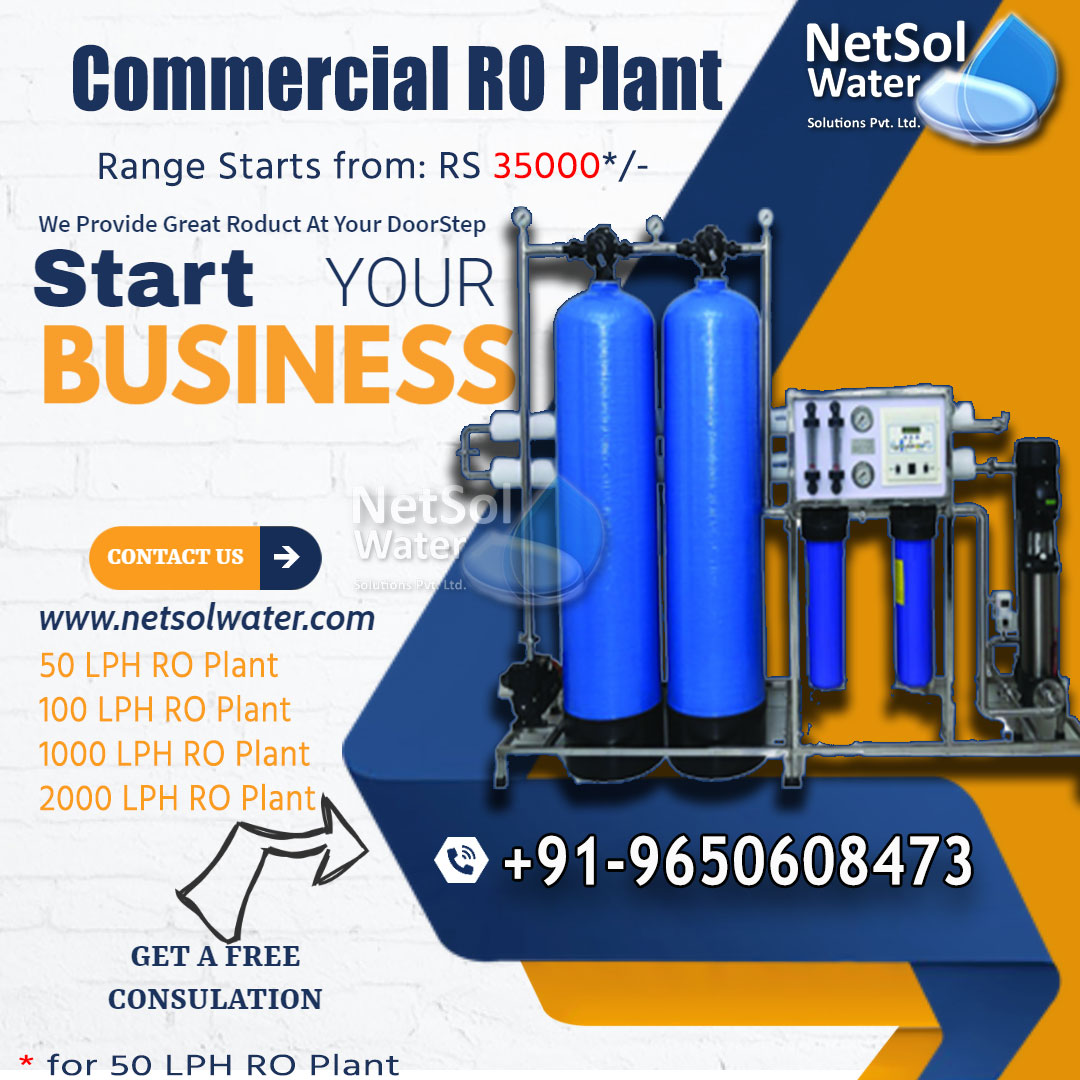What are the different Applications of Reverse Osmosis Technology?
Reverse osmosis (RO) technology has revolutionized water purification, offering an effective solution for removing impurities and producing clean, high-quality water. With its wide range of applications, RO has become an essential tool in various industries and sectors. In this blog, we will delve into the different applications of reverse osmosis technology, highlighting its significance and impact in areas such as drinking water purification, desalination, wastewater treatment, industrial water treatment, pharmaceuticals and healthcare, food and beverage, electronics manufacturing, agriculture, and car wash facilities. By understanding the diverse applications of RO, we can appreciate its role in addressing water scarcity, enhancing water quality, and supporting sustainable development across multiple sectors.
· Drinking Water Purification:
One of the primary applications of reverse osmosis technology is in drinking water purification. RO systems are commonly used in both residential and commercial settings to provide clean and safe drinking water. The semi-permeable membrane used in RO effectively removes contaminants such as bacteria, viruses, heavy metals, dissolved solids, and other impurities, ensuring the delivery of high-quality water to consumers. This application is particularly crucial in areas where the quality of the available water supply is compromised or questionable.
· Desalination:
Reverse osmosis plays a vital role in desalination, the process of converting seawater into freshwater. As freshwater resources become increasingly scarce, coastal communities and arid regions rely on desalination plants to meet their water needs. RO technology is at the heart of these plants, effectively removing salt and other minerals from seawater, thereby producing potable water. Desalination through reverse osmosis has proven to be a sustainable solution for regions facing water scarcity, providing a reliable and continuous source of freshwater.
· Wastewater Treatment and Reuse:
Reverse osmosis is an integral part of wastewater treatment processes, particularly in the tertiary treatment stage. After primary and secondary treatment, where physical and biological processes remove solids and organic matter, reverse osmosis helps to further purify the treated wastewater. RO membranes remove dissolved salts, organic compounds, and other contaminants, making the water suitable for reuse in various applications. Treated wastewater can be reused for irrigation, industrial processes, groundwater replenishment, and other non-potable uses, contributing to water conservation and sustainability.
· Industrial Water Treatment:
Many industries rely on reverse osmosis for water treatment purposes. RO systems are used to purify process water, boiler feedwater, cooling tower makeup water, and other water sources required in manufacturing processes. By removing impurities such as minerals, chemicals, and dissolved solids, reverse osmosis ensures that water used in industrial operations meets the required quality standards. This helps prevent equipment corrosion, scaling, and fouling, ensuring efficient and reliable manufacturing processes.
· Pharmaceutical and Healthcare:
Reverse osmosis technology plays a critical role in the pharmaceutical and healthcare sectors, where the production and use of high-purity water are paramount. RO systems are employed to produce purified water for various applications, including drug formulation, medical devices, dialysis, and laboratory testing. By effectively removing bacteria, viruses, pharmaceutical residues, and other contaminants, reverse osmosis ensures the safety and quality of water used in critical healthcare settings.
· Food and Beverage Industry:
In the food and beverage industry, reverse osmosis finds numerous applications. It is utilized for water purification, concentration, and the production of high-quality ingredients. RO systems can remove impurities and enhance the quality of water used in food and beverage processing, ensuring the safety and taste of the final products. Additionally, reverse osmosis is employed in processes such as fruit juice concentration, milk and whey protein concentration, and the production of purified water for various food and beverage applications.
· Electronics and Semiconductor Manufacturing:
The electronics industry relies on ultrapure water in manufacturing processes to ensure the integrity and reliability of electronic devices. Reverse osmosis plays a crucial role in producing ultrapure water by removing even trace amounts of impurities. RO systems, often combined with other purification technologies, help achieve the stringent water quality requirements of the semiconductor industry, microelectronics manufacturing, and electronic component assembly.
· Agricultural Applications:
In agriculture, reverse osmosis can be employed to desalinate brackish water or saline groundwater. By removing salts and impurities, RO systems can produce irrigation water suitable for crop cultivation. This application enables agricultural activities in regions with limited freshwater resources, contributing to increased food production and sustainability in arid and saline-affected areas.
· Car Washes and Spot-Free Rinse Systems:
Reverse osmosis technology finds application in car wash facilities to provide spot-free rinse water. The process involves removing minerals and impurities from the water, preventing water spots and streaks on vehicles during the drying process. Reverse osmosis ensures a superior finish and enhances customer satisfaction in the car wash industry.
Conclusion:
Reverse osmosis technology has emerged as a versatile and indispensable tool for water purification across various industries and sectors. From providing safe drinking water to addressing water scarcity through desalination, wastewater treatment, and industrial applications, reverse osmosis plays a critical role in supporting sustainable development and resource conservation. Its applications in pharmaceuticals, food and beverage, electronics manufacturing, agriculture, and car wash facilities further highlight its importance in ensuring water quality and meeting diverse needs. As technology advances and water resources become increasingly strained, reverse osmosis is likely to continue evolving, enabling new applications and innovative solutions for water purification and conservation.




